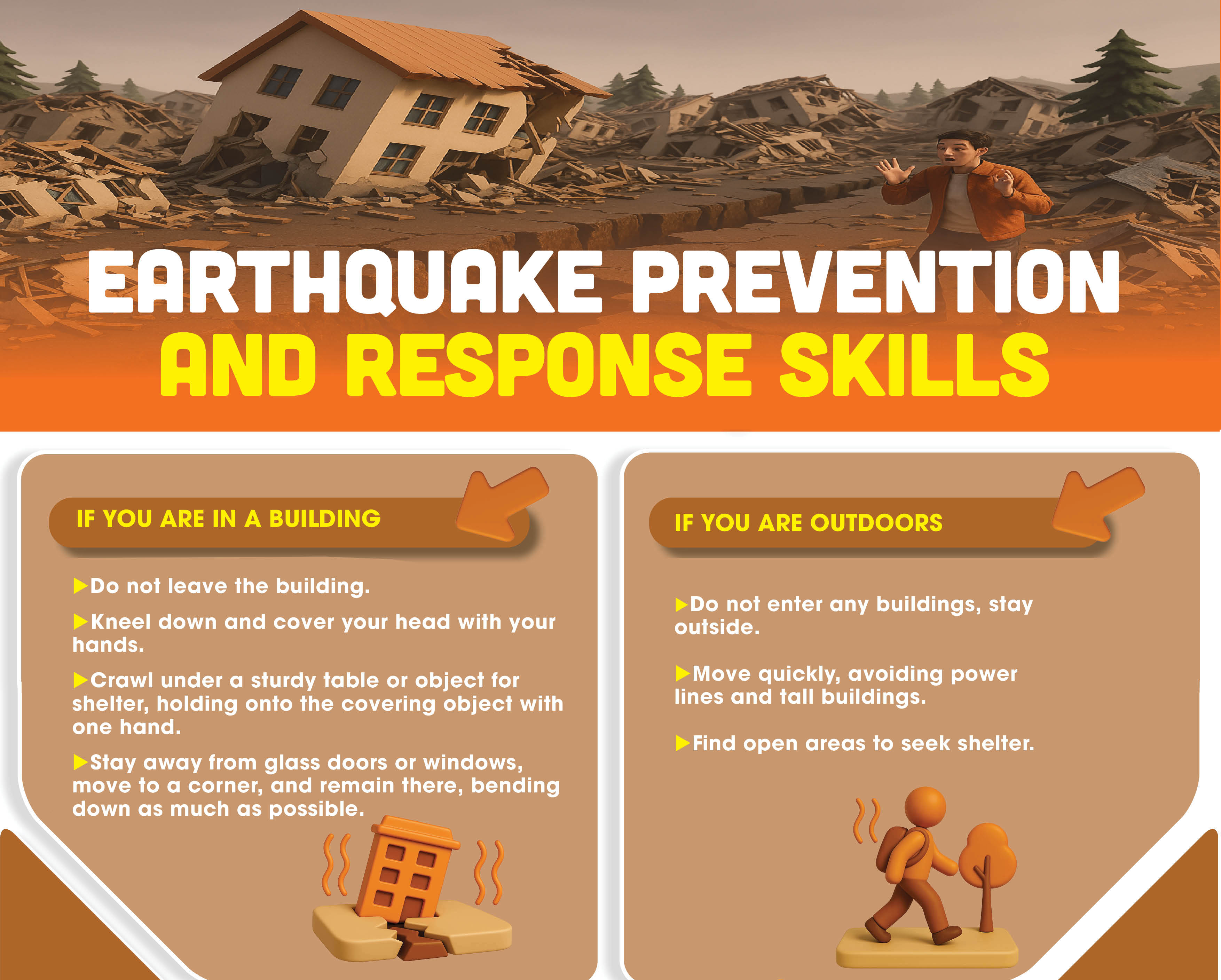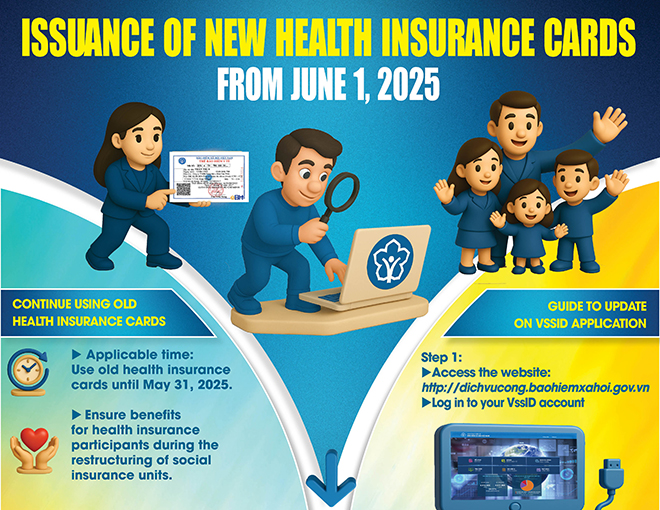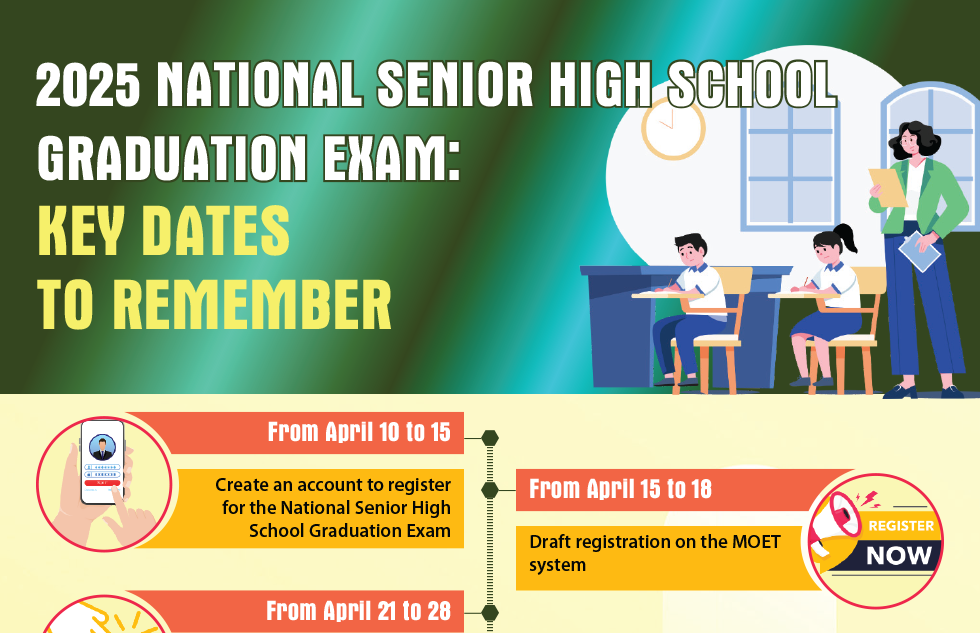Da Nang prepares to vaccinate children age 5-11
Like other localities nationwide, the Da Nang government has issued a plan to vaccinate against COVID-19 for children aged 5 to 11. According to a recent survey, about 69% of the parents across the city agreed to let their children get COVID-19 vaccination. Up to now, the local health sectors and districts are ready in terms of human resources, equipment and vaccination sites.
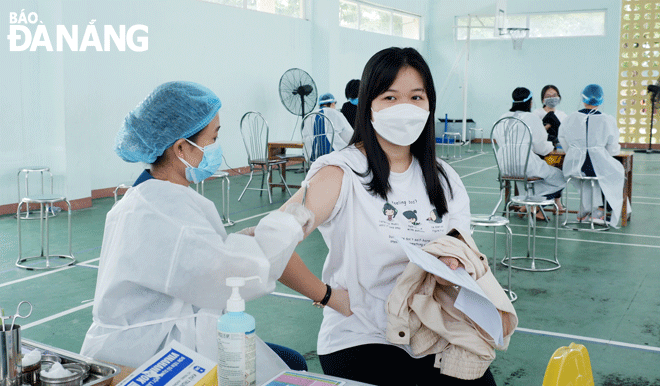 |
| The Da Nang government requires relevant local agencies to effectively implement vaccination against COVID-19 for children from 5 to under 12 years old. Medical staffers are pictured administering a COVID-19 vaccine shot to a junior high school student in Son Tra District. Photo: PHAN CHUNG |
According to the municipal Department of Health, there are about 133,000 children Da Nang-wide aged 5 to under 12, of whom about 30,000 have been infected with COVID-19 who shall, as prescribed by the rules, get vaccinated after 3 - 6 months.
A survey of parents shows that currently, about 70,000 children (69%) are ready for vaccinations in the near future.
According to doctor Ton That Thanh, the Director of the Da Nang Centre for Disease Control (CDC), under the guidance of the Ministry of Health, two vaccines approved for use on children aged 5-11 are Pfizer-BioNTech (10μg - 0.2 ml, equivalent to 1/3 of the adult dose) and Moderna (50μg - 0.25 ml equivalent to 1/2 of the adult dose).
The recommended interval between the two doses is four weeks. For children, both doses must be of the same vaccine.
Up to now, CDC Da Nang has received 10,300 doses of Moderna vaccine from the Ministry of Health.
Currently, the local health sector is organising injection plans for children in all local districts as soon as possible.
Vaccination deployment time is based on vaccine supply capacity under the guidance of the Vietnamese Ministry of Health and pandemic developments in the city.
Vaccination rollout will take place in 2 phases, in which Phase 1 is expected to kick off within April to immunize children aged 5 to below 12, excluding those who have contracted COVID-19 over the past 3 months.
Phase 2, expected to be implemented, following the Ministry of Health's guidance and direction on when to vaccinate children with COVID-19, will administer vaccines to those have been infected with COVID-19 with indications to delay vaccination.
Meanwhile, according to doctor Truong Van Trinh, Deputy Director of the municipal Department of Health, the work of vaccinating against COVID-19 for children 5 to 11-year-olds will be organised in the form of a roll-up from large to small ages, classified by school and by district and ward/commune with heed to ensuring children’s safety and inoculation efficiency.
One of the requirements to which units and establishments must pay special attention is to perform pre-injection screening under the guidance of the Ministry of Health.
In particular, it is noted that carefully exploiting the child's COVID-19 contraction history during screening and having an indication to delay vaccination after 3 months of illness according to the instructions.
The monitoring and handling of adverse events after vaccination against COVID-19 need special attention.
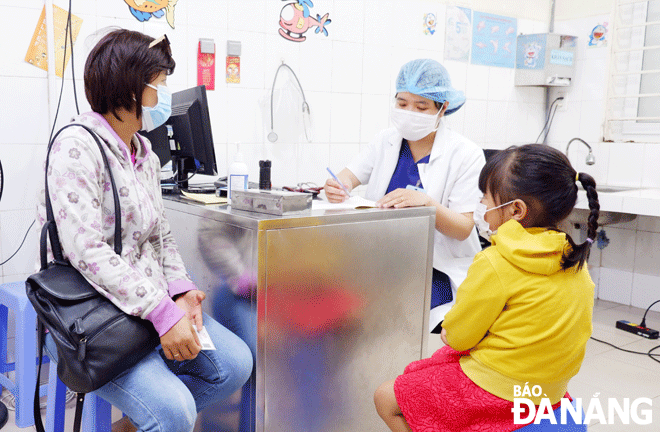 |
| The vaccination against COVID-19 for children from 5 to under 12 years old helps to proactively prevent and control further pandemic developments in the community. A doctor from the Da Nang Maternity and Paediatrics Hospital examines a kid after her recovery from COVID-19. Photo: PHAN CHUNG |
Accordingly, after vaccination, children need to be monitored for at least 30 minutes right at the vaccination site. Health staff shall instruct parents and guardians to closely monitor the vaccinated at home within 24 hours and continue monitoring within 28 days after inoculation, especially within the first 7 days after vaccinations, on signs of general condition, mental, eating, sleeping, breathing, rash, symptoms at injection sites.
The common side effects of the Moderna vaccine include lymph node swelling, headaches, nausea, muscle and joint pains, injection site pain, chills, fevers, swelling and/or rashes at the injection site, according to the ministry.
Meanwhile, diarrhoea, rashes, and dermographic urticaria are common side effects at injection sites.
“The child's relatives need to contact hospitals or medical facilities if they have abnormal health after vaccination. It is an urgent need to go to the nearest hospital or medical facility immediately when the children have one of the signs such as high fever (≥390C), cyanosis, difficulty breathing or when the usual reaction lasts more than 24 hours after getting jabs. In case a serious accident occurs while vaccination is being carried out, the head of the vaccination facility is responsible for immediately stopping the vaccination process, providing emergency treatment and reporting the incident as prescribed”, said doctor Trinh.
|
Get vaccinated for peace of mind Ms. Nguyen Thao Anh, a resident in Thac Gian Ward, Thanh Khe District said: Although COVID-19 is no longer as complicated and scary as before, I still don't really feel secure if my child contract the virus. So far, schools have reopened, socio-economic activities have recovered and there are many foreign tourists and experts coming to Viet Nam. This opens up many opportunities for economic recovery and development, but also poses risks. Safe adaptation in your opinion is to protect yourself against the risks of infection with the highly-contagious disease. I am in support of injections against COVID-19 for children. Meanwhile, Le Thi Nhung, another dweller in Nai Hien Dong Ward, Son Tra District said, “I myself have contracted COVID-19, so I am very afraid of being re-infected. Although it is no longer as dangerous as before, the post-COVID-19 pandemic has greatly affected my health and daily life. Previously, I had also wondered whether to vaccinate my children or not. But after I directly contracted and received treatment for the disease, and overcame post-COVID-19 health problems, I think it is necessary to vaccinate my children, a way to protect their health, especially in the context of more many strains of the virus appearing as currently”. |
|
What to do when taking your child to vaccination sites? According to doctor Tran Thi Hoang, Deputy Director of the Da Nang Hospital of Maternity and Paediatrics, family members shall prepare information about the child's pathology, medication the child is taking, the history of allergies to medicine and food if any. Also, they are highly recommended to report about their children’s health status. Kids should wear comfortable clothes, short sleeves, bring bottles of drinking water with them and stay calm and secure about getting vaccinated against the disease, and be on time for their inoculation appointments. Signs that need to take the vaccinated to a medical facility urgently are irritability, lethargy, convulsions, chest pain, palpitations, fatigue, sweating, shortness of breath during normal activity and at rest, high fever even after using antipyretics, or lasts for more than 24 hours, vomiting a lot, skipping meals, and having rash that develops rapidly within a few hours. |
Reportinh by PHAN CHUNG – Translating by A.THU



